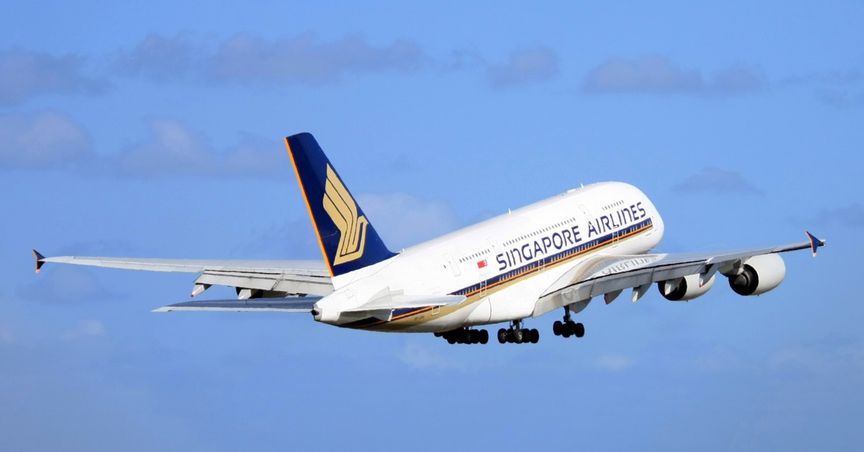Highlights
- Singapore Airlines has signed the Global Sustainable Aviation Fuel (SAF) Declaration.
- SIA has partnered with Safran, Airbus, and Rolls-Royce to sign the Declaration.
- SIA is actively accelerating the usage of SAF in Singapore with its partners.
Singapore Airlines is making headlines today as it has signed the Global Sustainable Aviation Fuel (SAF) Declaration.
The airline has joined the European aircraft manufacturer Airbus and Safran, and Rolls-Royce to sign the Declaration at Singapore Air Show this week.
What is the Global SAF declaration?
The Global SAF Declaration aims to decarbonise the aviation industry by calling various industry partners to work towards SAF uptake jointly.
It is open to all aviation, airlines, and aerospace organisations.
SAF, or sustainable aviation fuel, is a biofuel used to power aircraft like conventional jet fuels but with smaller carbon footprints.
The Global SAF Declaration has further reaffirmed SIA's commitment to achieving net-zero carbon emission by FY2050.
SAF plays a significant role in decarbonisation. It allows for up to 80% gain in terms of CO2 reduction across SAF lifecycles.
Related read - Three clean energy ETFs to watch out for in 2022
All aircraft are certified to fly with 50% SAF, which will likely increase to 100% by 2030.
SIA is firmly committed to its sustainability goals as it has been actively accelerating the usage of SAF in Singapore with its partners.
While SAF remains an expensive deal for airlines, the Declaration further notes that SAFs can replace nearly 50% of the conventional fossil fuel-based kerosene.
Apart from cost and availability issues, SAF helps the airlines reduce their current net carbon footprint.
However, SIA doesn't need to start using SAF now.
What next?
Meanwhile, the airline and the Civil Aviation Authority of Singapore (CAAS) and Singaporean investment firm Temasek have selected ExxonMobile to supply SAF under a pilot programme.
Under the programme, SIA will buy blended SAF from ExxonMobile, where the product will comprise 1.25 million litres of neat SAF.
SIA expects to deliver the fuel to Changi Airport via the airport's existing fuel hydrant system by end-July 2022. All Singaporean Airlines and Scoot flights will use this blended fuel from the third quarter of FY22.
Bottomline
Although using SAF over the one-year pilot will likely reduce about 2,500 tonnes of carbon dioxide emissions. However, it's a long-term conditioning process, so the Declaration doesn't focus on short-term impacts.



